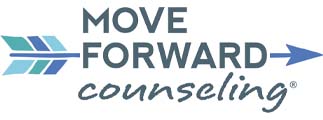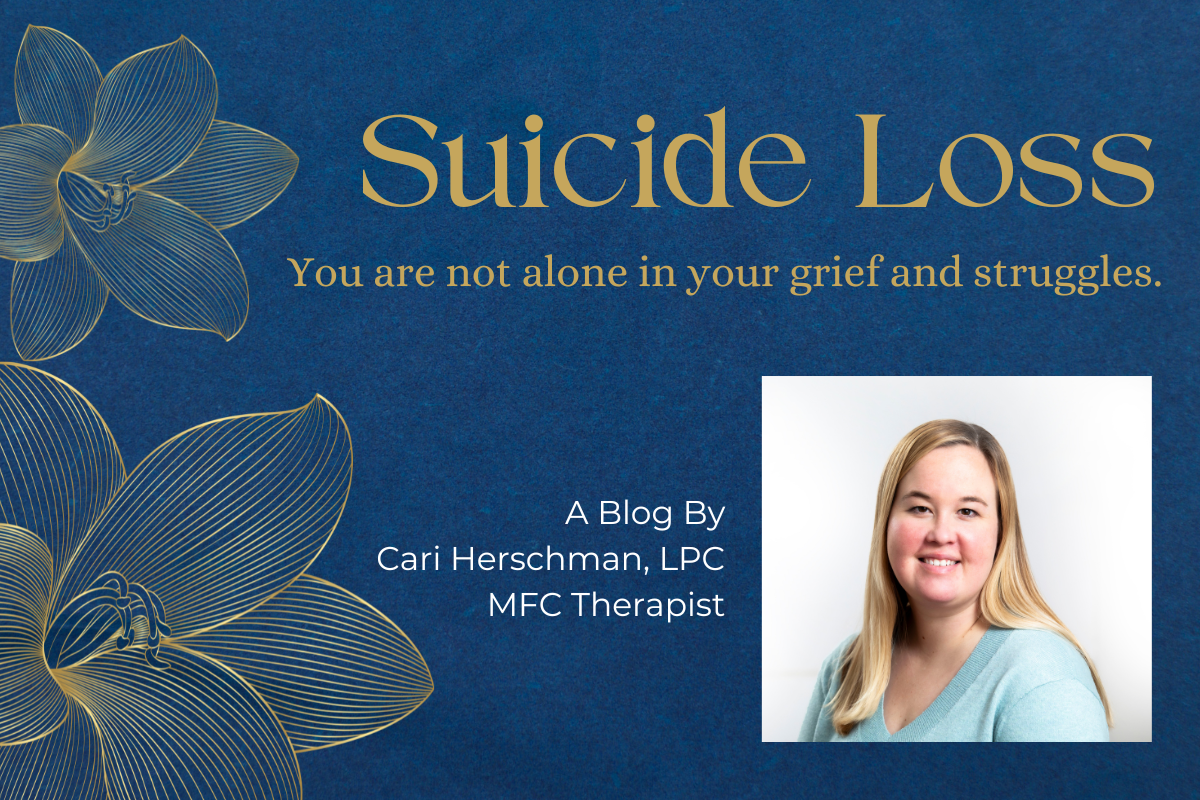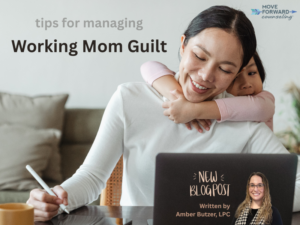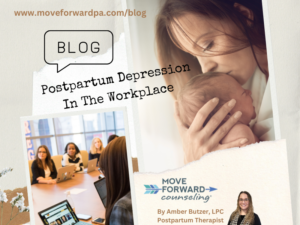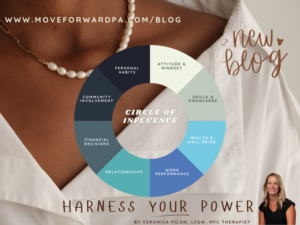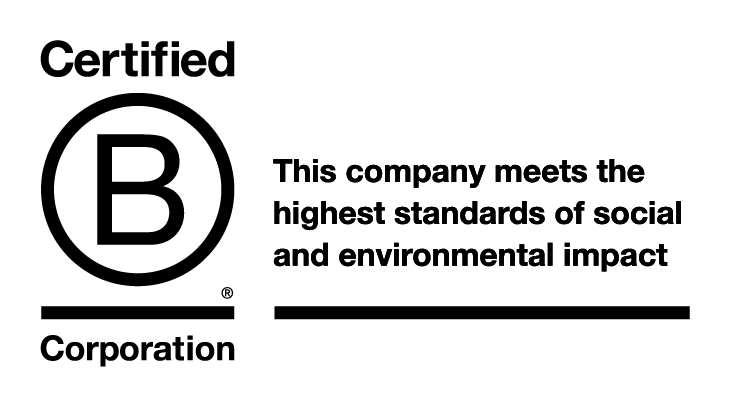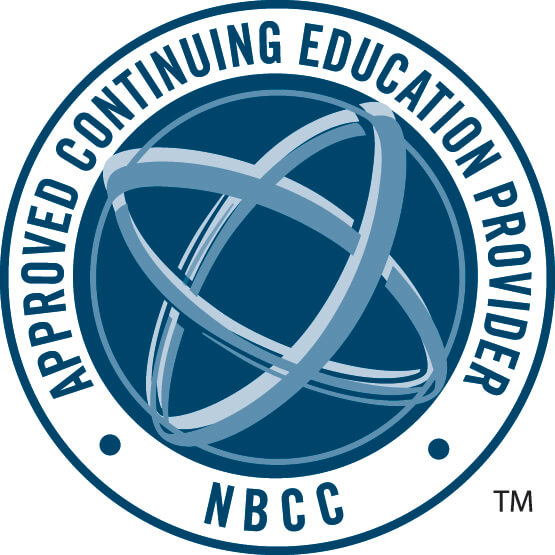Article by Cari Hershman, LPC, and MFC Therapist
You Are Not Alone
As a person who experienced suicide loss in their lives, I want you to know you are not alone in your grief and your struggles.
There is no one single cause for suicide, and many factors contribute to a suicide death. Suicide most often occurs when stressors and health issues converge to create an experience of hopelessness and despair. Depression is the most common condition associated with suicide, and it is often undiagnosed or untreated. Most people who actively manage their mental health conditions lead fulfilling lives. Conditions like depression, anxiety, and substance use problems, especially when unaddressed, increase the risk of suicide.
Suicide loss is a very complex type of grief and can be very isolating. We can experience a multitude of emotions while trying to process this loss. I know how important it is to have a therapist who is trained in suicide loss and grief. My experience includes taking the Clinician Loss training sponsored by the American Foundation for Suicide Prevention to help therapists and clinicians treat and understand the impacts of suicide loss. Additionally, I participate and volunteer in the American Foundation for Suicide Prevention’s community to give others resources and support within our area.
Using a very individualized approach, I like to help clients navigate this journey and understand the complex emotions that they may be feeling. Taking care of yourself in the wake of a suicide loss can be difficult but so crucial. By practicing self-care, you can be a role model to others impacted by suicide. Please be patient and gentle with yourself. I want you to know that everyone, including you, grieves at their own pace and time.
To schedule therapy with me or another specialized therapist at MFC, you can use the chat on this website, submit a contact form, or call 717-462-7003.
Help and Resources
AFSP Organization
988 Suicide and Crisis Lifeline
The Lifeline provides 24/7, free, and confidential support for people in distress, prevention and crisis resources for you or your loved ones, and best practices for professionals. Find more information about the Lifeline at suicidepreventionlifeline.org. Press the button below to call directly or dial 988.
Veterans Crisis Line
Connect with the Veterans Crisis Line to reach caring, qualified responders with the Department of Veterans Affairs. Many of them are Veterans themselves. Find more information about the Veterans Crisis Line at www.veteranscrisisline.net. Press the button below to call directly or dial 800-273-8255 and press 1.
Text Crisis Line
Text from anywhere in the USA to text with a trained Crisis Counselor. very texter is connected with a Crisis Counselor, a real-life human being trained to bring texters from a hot moment to a cool calm through active listening and collaborative problem-solving. Find more information about the Crisis Text Line at crisistextline.org. Text directly or text TALK to 741741 to text with a trained crisis counselor for free, 24/7.
